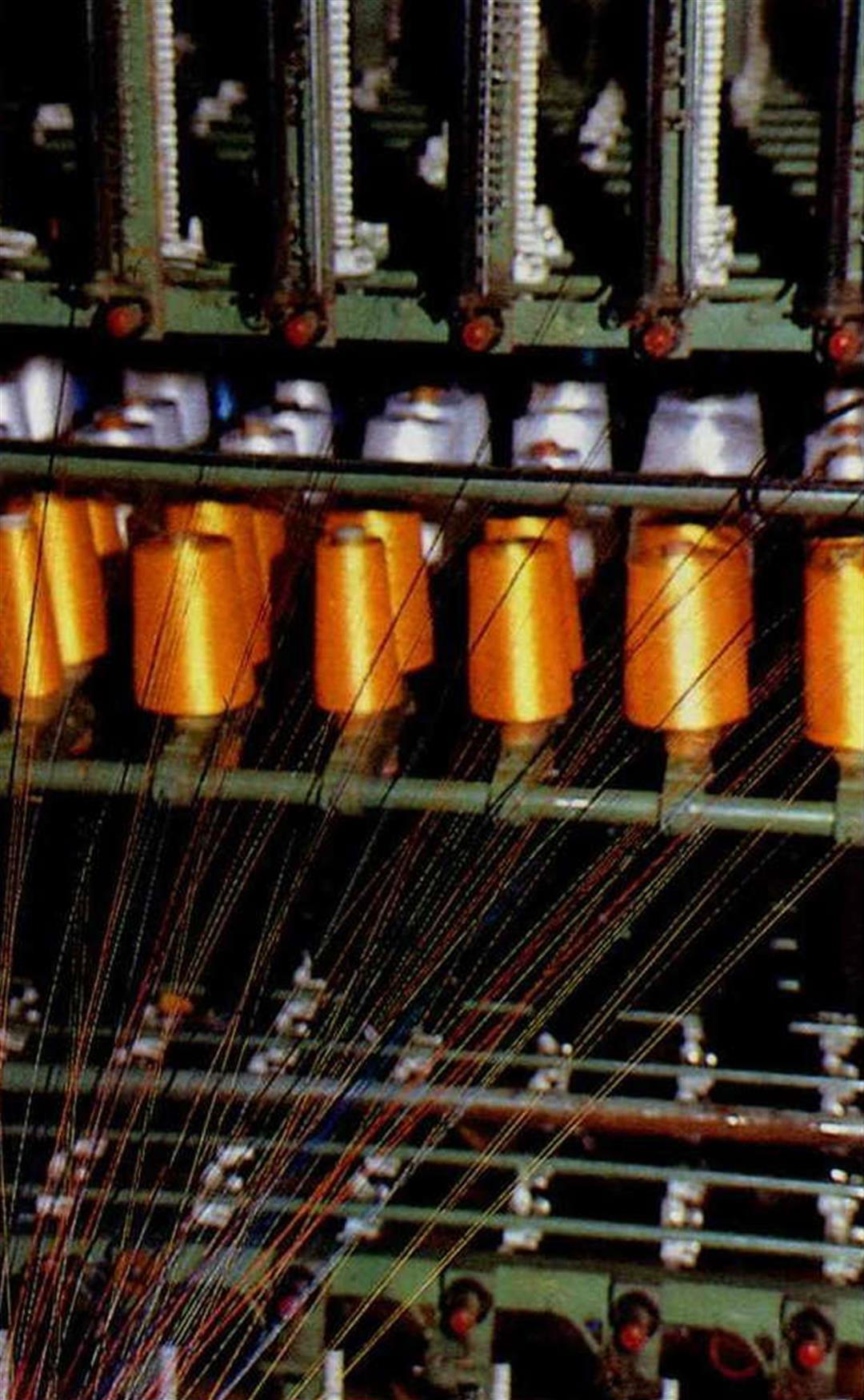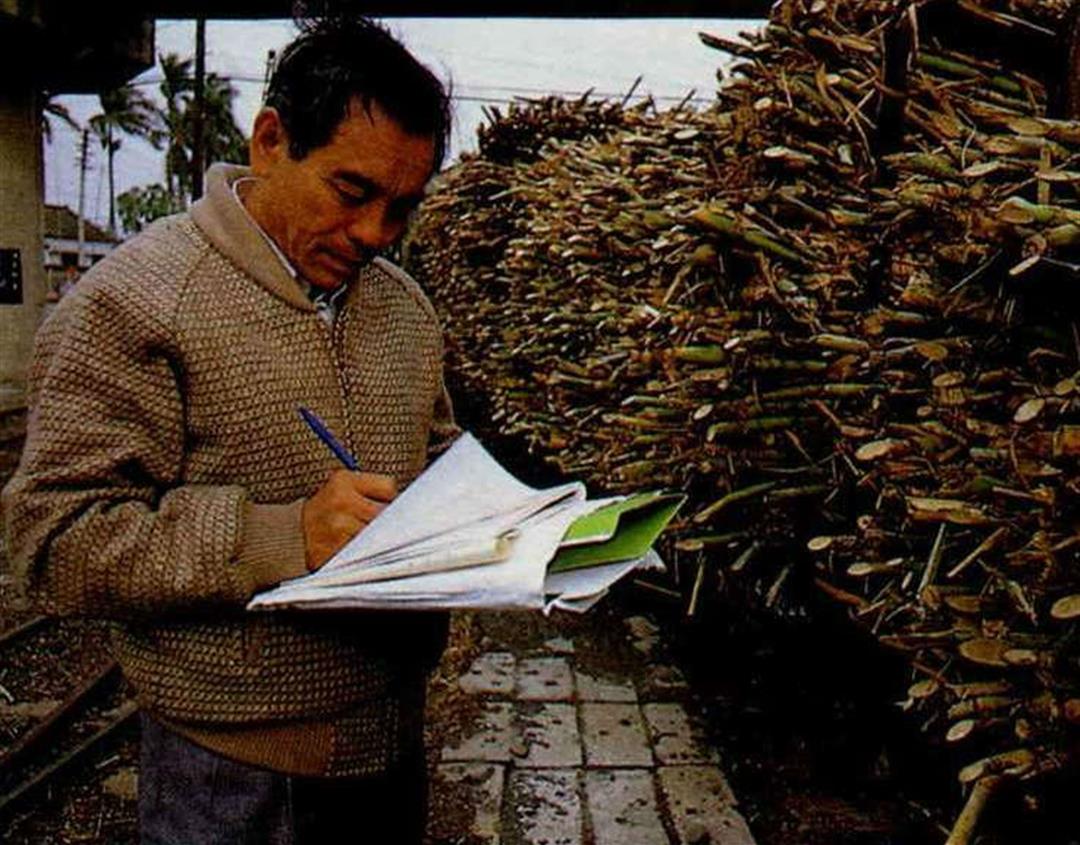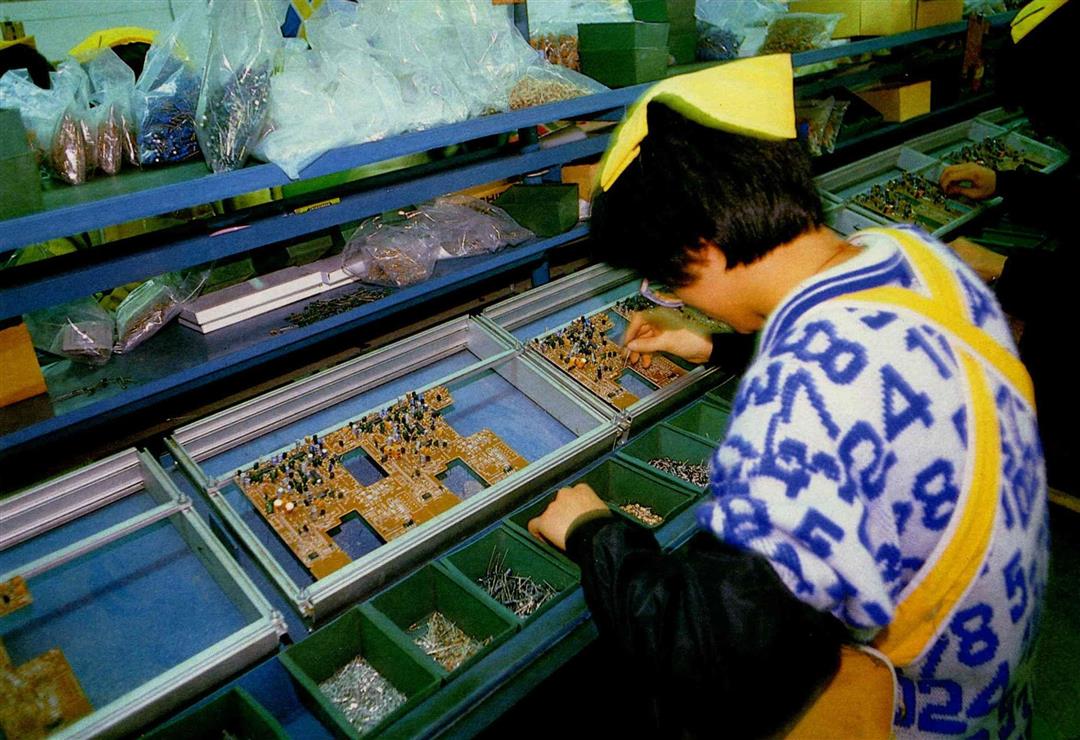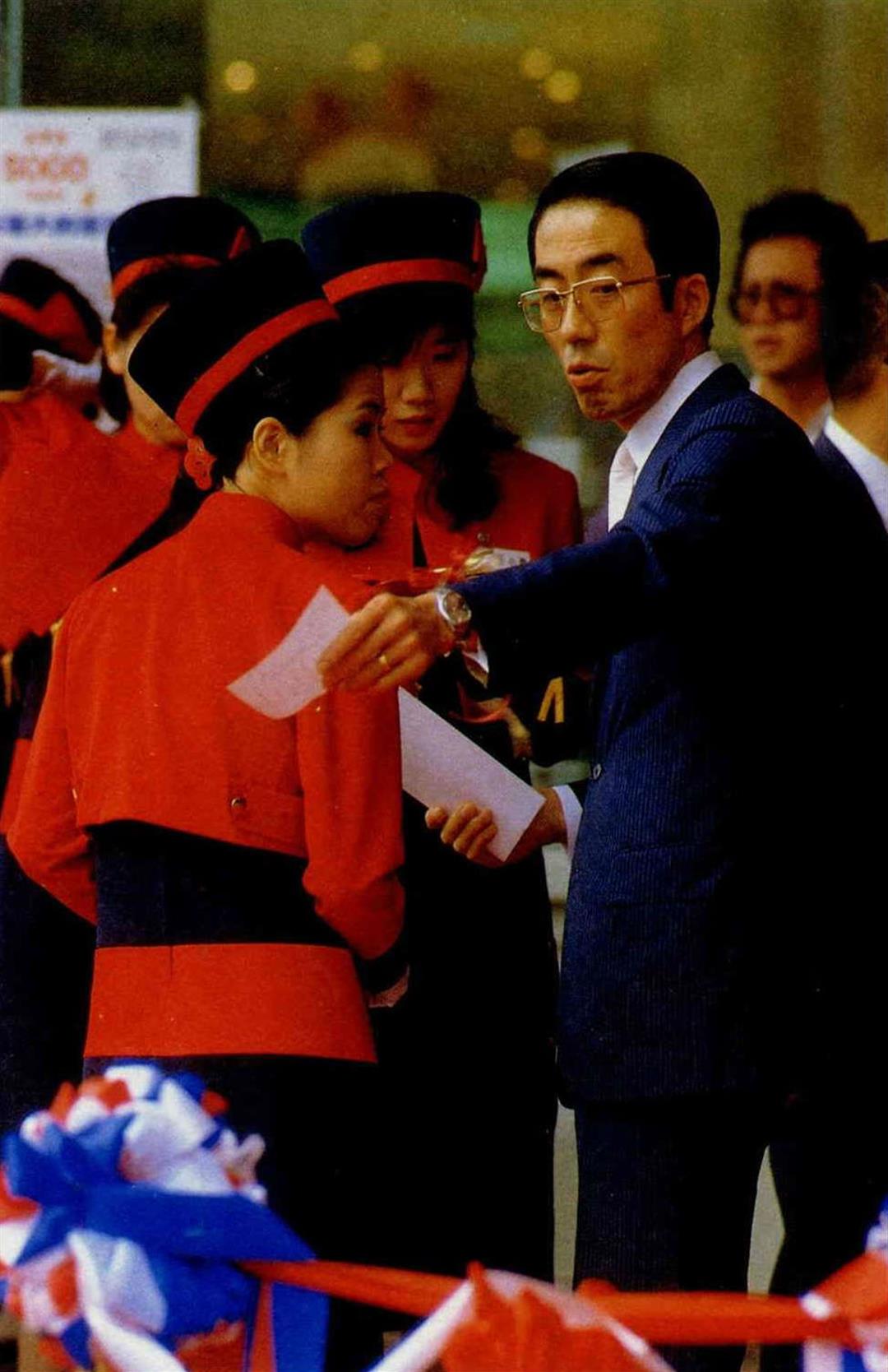With subsidiaries spread across the globe like a finely woven spider's net and diligent employees who view their jobs as their life's work, Japanese firms play a decisive role in world trade. Important too is the role which Japanese firms have played in the growth of Taiwan's foreign trade, so much so that the relationship can almost be described as an umbilical one between mother and infant.
During the early period of their efforts to expand exports, the difficulty that manufacturers on Taiwan most often encountered was, "Where are the buyers?" For makers trying to set up an export business, sending telexes and writing business letters were no easy tasks, not to mention flying overseas to look for customers. That was when Japanese companies experienced in foreign trade began naturally to serve as a bridge between domestic makers and overseas buyers. All the operations entailed in the export business, from writing up orders to loading and shipping merchandise to destination ports, were handled by the Japanese firms. "You handle production, I'll take care of sales" became the model for cooperation between domestic manufacturers and Japanese trading companies.
Following the establishment of the first Japanese trading branch on Taiwan in 1953, each of the other nine major firms, which together account for around half of Japan's foreign trade, have all set up branches on Taiwan, as have many other smaller companies. Besides being responsible for distribution and sales, they also act as agents for domestic makers in importing raw materials, parts, and machinery and in providing capital and financial services.
During the 1950s, when Taiwan's industry was just beginning to take off and was short on capital, the financial role of Japanese trading firms was indeed of great assistance to local manufacturers, many of whom also brought in Japanese technology through the firms to raise the quality of their products. The combination of capital, technology, and cheap local labor together with the Japanese companies' international distribution networks enabled "Made in Taiwan" products to find markets worldwide, especially in the United States.
But along with the growth in exports and its increasing accumulation of foreign exchange reserves, the country's exports came to rely more and more heavily on Japanese trading firms.
Before the Republic of China and Japan severed diplomatic ties in 1972, neither the public nor the government were fully aware of the role played by Japanese firms in the nation's economy. It was only later, when they hoped to reduce the nation's reliance on Japanese companies, that they discovered just how much of the nation's trade, from the importation of raw materials to the sale and distribution of finished products, depended on Japanese channels.
Someone once described the grip of Japanese trading firms on Taiwan's economy as that of an octopus, its suckers tightly clasped at every step of the island's growth.
In the years just after World War Ⅱ, Japan was Taiwan's largest customer for rice, sugar, bananas, pineapples, and other agricultural products, and Japanese trading firms had their hands deeply in the import of fiber and the export of fabrics during the period when Taiwan was developing its light industry. Even today, Japanese companies supply many of the components and much of the know-how needed by Taiwan's electronics industry, and they assist in opening and expanding markets for many of its products.
On the positive side, the companies' giant distribution networks have enabled Taiwan to rapidly expand its foreign trade, helping it to become the world's fourteenth largest exporting nation. But the fact that half of the country's exports pass through the hands of Japanese trading companies cannot avoid casting doubt on the solidity of the achievement.
The reliance of Taiwan's small and medium-sized enterprises on the companies goes without saying when the government itself, in purchasing large quantities of goods from the United States, often becomes involved with the U.S. branch of a Japanese trading firm. Even Formosa Plastics, one of the country's largest conglomerates, goes through a Japanese trading firm to source raw materials, all of which enables us to glimpse something of the companies' power to control global products and resources.
Hsu Yu-chu, a professor at the Business Administration School of National Chengchi University, points out with some concern in a paper of hers that local manufacturers may rely on Japanese trading firms to explore and develop international markets for them, but they will be unable to establish their own reputations or brand names so long as distribution channels, raw materials sourcing, and pricing lie so largely in the hands of others. In a time of recession Japanese companies will naturally decrease their orders from Taiwan in the interest of their own country, and relying on them for the import of raw materials and machinery makes local makers all the more easily subject to manipulation.
Many developed countries (including the United States), feeling that the key to Japan's economic success lies in its trading conglomerates, have tried to imitate them by setting up similar companies of their own. In view of this trend, whether our country's trading companies can bear the important task of promoting and expanding foreign trade will have a deep and far-reaching effect on the development of our nation's economy.
[Picture Caption]
Famed for their knowledge of the latest commercial information, Japanese trading firms send and receive more telexes than the Japanese Ministry of Foreign Affairs. (photo by Arthur Cheng)
The domestic textile industry has a closely-knit relationship with Japanese trading firms.
Japan was Taiwan's biggest customer for cane sugar.
The domestic electronics industry relies heavily on Japanese technology and marketing.
Japanese trading firms frequently facilitate technology transfer for the country's major construction projects.
Toyota Motors, a member of the Mitsui corporate group, is planning to set up a factory on Taiwan, and the group's Taipei branch office is naturally a motive force in the plan.
Their predominance in manufacturing industries gradually declining, Japanese trading firms plan to develop in the direction of the service industries in the future.

The domestic textile industry has a closely-knit relationship with Japanese trading firms.

Japan was Taiwan's biggest customer for cane sugar.

The domestic electronics industry relies heavily on Japanese technology and marketing.

Japanese trading firms frequently facilitate technology transfer for the country's major construction projects.

Toyota Motors, a member of the Mitsui corporate group, is planning to set up a factory on Taiwan, and the group's Taipei branch office is naturally a motive force in the plan.

Their predominance in manufacturing industries gradually declining, Japanese trading firms plan to develop in the direction of the service industries in the future.